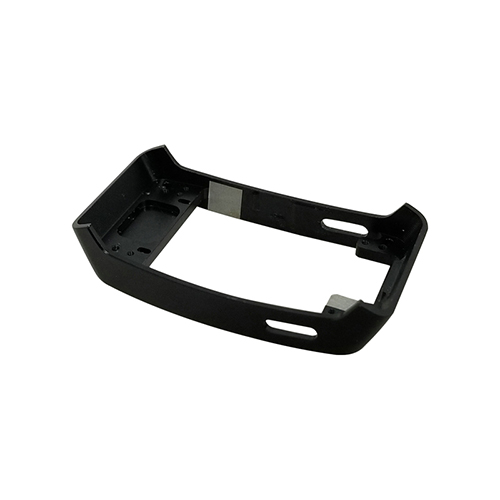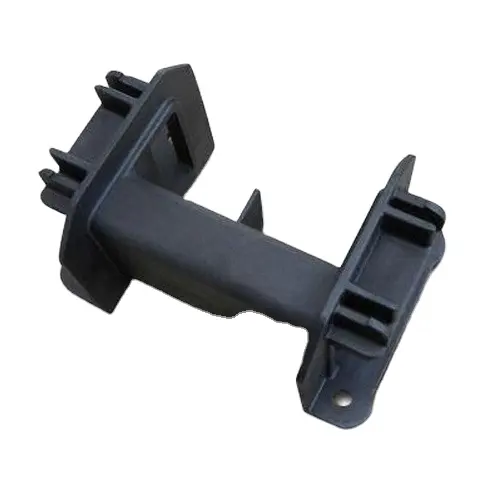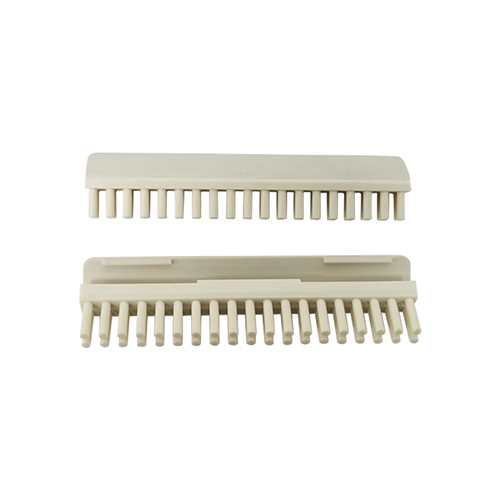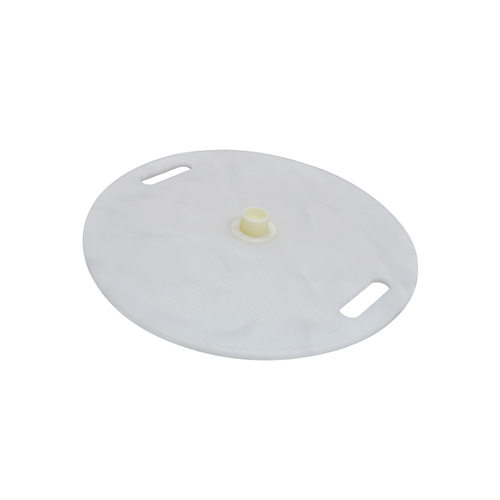Polypropylene Injection Molding Service
Custom Polypropylene Injection Molding Service
From prototyping to full-scale production, we ensure strict adherence to your specifications, providing you with high-quality molded parts or prototypes that perform consistently and are delivered quickly.
- Guaranteed Consistent Quality
- Lead Time As Fast As 1 Day
- Cost-effective
- Tolerances Down To ±0.005mm
- 99.5% On-time Delivery
- Highest-Quality Polypropylene Parts, ISO Certified

Our Polypropylene Injection Molding Capabilities
At NOBLE, we are dedicated to supporting you in achieving your manufacturing objectives. By leveraging advanced technology and cutting-edge injection molding techniques, we continually seek innovative and practical solutions. Our injection molding capabilities deliver precision-crafted polypropylene prototypes and parts, ensuring exceptional quality at every step.
| Price | $$$ |
| Lead Time | < 4 days |
| Wall Thickness | 0.045in. – 0.1380 in |
| Tolerances | +/- 0.003 in. (0.08mm) with an included resin tolerance that can be greater than but no less than +/- 0.002 in./in. (0.002mm/mm) |
| Max Part Size | 18.9 in. x 29.6 in. x 8 in. (480mm x 751mm x 203mm) |
| Available Polypropylene at NOBLE | PP-H, PP-C, PP-R, PP-Impact, GF-PP, PP-N… |

Characteristics of Polypropylene Injection Molding Materials
Polypropylene is a versatile thermoplastic material widely used in injection molding due to its lightweight nature, excellent chemical resistance, and ease of processing. In injection molding, polypropylene flows easily into molds and can be molded into complex shapes with high precision. To ensure consistent part quality and avoid defects such as warping or sink marks, it’s important to optimize molding conditions and use the appropriate injection pressure and cooling rates.
| Features | Info |
| Subtypes | PP-H, PP-C, PP-R, PP-Impact, GF-PP, PP-N… |
| Process | Injection molding, extrusion, CNC machining, blow molding, and rotational molding |
| Tolerance | +/- 0.003 in. (0.08mm) with an included resin tolerance that can be greater than but no less than +/- 0.002 in./in. (0.002mm/mm) |
| Applications | Automotive Parts, Robotics Parts, Medical Devices, Automation Industry, New Energy, Consumer Goods |
| Finishing Options | Polishing, Bead Blasting, Coating, Flame Polishing, Painting |
Pros and Cons of Polypropylene for Injection Molding
Polypropylene is lightweight, chemically resistant, and easy to mold, but it has lower impact resistance, heat tolerance, and can be prone to surface imperfections. By combining our deep understanding of polypropylene’s material characteristics with our advanced injection molding capabilities, we can produce high-quality, cost-effective polypropylene components that meet the rigorous demands of your industry.
Ease of Molding
Polypropylene’s low viscosity and excellent flow properties make it easy to mold with standard injection molding equipment. Its ability to fill molds quickly reduces cycle times, enhancing production efficiency, particularly in high-volume runs.
Chemical Resistance
Polypropylene is highly resistant to a wide range of chemicals, including acids, alkalis, and solvents. This makes it ideal for injection-molded parts exposed to harsh environments, such as chemical tanks, valves, or automotive components, where material integrity is essential.
Lightweight
With a density of 0.90 g/cm³, polypropylene is much lighter than many other plastics. This makes it perfect for parts requiring weight reduction, such as automotive parts, medical devices, or consumer goods, improving efficiency without sacrificing strength.
Cost-Effective
Polypropylene is an affordable material compared to other engineering plastics. It reduces material costs for both prototyping and mass production while maintaining good performance and ease of injection molding.
Good Surface Finish
When injection molded correctly, polypropylene can achieve a smooth, attractive surface finish. This is essential for applications like medical devices, packaging, or consumer products, where both appearance and functional performance are important.

Low Melting Point
With a melting point of 320–340℉, polypropylene can soften or degrade during injection molding, especially at high temperatures or excessive molding pressures. This can lead to poor mold filling, surface defects, or warping. To mitigate this, it’s crucial to control mold temperature, adjust injection speed, and optimize cooling cycles.
Tendency to Warp or Shrink
Due to its crystalline structure, polypropylene tends to warp or shrink as it cools. Injection molding professionals must carefully manage cooling rates and mold design to avoid warping, and post-molding stabilization may be necessary for certain applications.
Lower Structural Strength
While polypropylene has good impact resistance, its structural strength is lower compared to materials like polycarbonate or nylon. It may not be suitable for high-stress or load-bearing applications, limiting its use in structural components requiring greater strength or rigidity.
UV Degradation
Polypropylene is susceptible to degradation from UV exposure, leading to brittleness and discoloration over time. For outdoor applications or parts exposed to sunlight, UV stabilizers or coatings can be added during the molding process to preserve the material’s mechanical properties.
Surface Scratching
Polypropylene’s relatively soft surface makes it more prone to scratching, especially during post-molding handling or in end-use applications. Careful handling and finishing processes are necessary to minimize cosmetic damage, particularly for high-visibility parts.

Types of Polypropylene Injection Molding Materials
Each type of polypropylene offers unique properties for specific applications. By understanding your needs, we recommend the best material for your injection molding projects, ensuring optimal performance and cost-effectiveness. We use high-quality polypropylene materials and maintain process stability for consistent, reliable results.

Homopolymer Polypropylene (PP-H)
PP-H is widely used in injection molding for its ease of processing, chemical resistance, and low cost. It’s ideal for applications like containers and piping, offering good moldability and smooth finishes. However, its lower impact resistance limits its use in high-stress injection-molded applications.
Tensile Modulus: 1300-1600 MPa
Tensile Strain (Yield): 8-10%
Rockwell Hardness: 60-70 R
Heat Deflection Temperature: 220-230°F

Copolymer Polypropylene (PP-C)
PP-C, with enhanced toughness and flexibility, is often chosen for injection molding of impact-resistant parts such as automotive components and medical devices. The ethylene content improves crack resistance, but molding may require adjusted temperatures and techniques to avoid deformation.
Tensile Modulus: 1000-1400 MPa
Tensile Strain (Yield): 10-12%
Rockwell Hardness: 55-65 R
Heat Deflection Temperature: 210-220°F

Random Copolymer Polypropylene (PP-R)
PP-R is ideal for injection molding of transparent or precision parts, such as medical packaging and food containers. Its improved weldability and resistance to stress cracking allow for high-quality finishes, clear surfaces, and tight tolerances in demanding applications.
Tensile Modulus: 1100-1500 MPa
Tensile Strain (Yield): 8-10%
Rockwell Hardness: 60-70 R
Heat Deflection Temperature: 220°F

Impact Copolymer Polypropylene (PP-Impact)
Impact copolymer PP is designed for superior impact resistance, making it suitable for injection-molded parts exposed to mechanical stress, such as automotive bumpers. Its enhanced toughness requires careful adjustment of molding parameters to prevent material degradation and ensure optimal results.
Tensile Modulus: 1200-1500 MPa
Tensile Strain (Yield): 15-20%
Rockwell Hardness: 50-60 R
Heat Deflection Temperature: 190-210°F

Glass-Filled Polypropylene (GF-PP)
GF-PP is ideal for injection-molded parts requiring high strength and dimensional stability, such as automotive and electrical components. The addition of glass fibers increases tool wear, so specialized molds and careful processing are necessary to ensure precision under high-stress molding conditions.
Tensile Modulus: 2000-2500 MPa
Tensile Strain (Yield): 2-4%
Rockwell Hardness: 85-95 R
Heat Deflection Temperature: 250-270°F

Nucleated Polypropylene (PP-N)
P-N, modified with nucleating agents, enhances crystallization, improving rigidity and surface hardness. It’s well-suited for injection molding of high-performance parts like thin-walled containers. Advanced molding techniques and cooling methods are used to maintain dimensional stability and prevent warping during processing.
Tensile Modulus: 1400-1600 MPa
Tensile Strain (Yield): 6-8%
Rockwell Hardness: 60-70 R
Heat Deflection Temperature: 230°F
Surface Finishing Options for Polypropylene Injection Molding
Achieving a smooth, visually appealing surface finish is essential when molding polypropylene for both functionality and aesthetics. NOBLE provides a variety of surface treatments as part of its polypropylene injection molding services, designed to improve the mechanical properties and the appearance of each molded part.

Polishing
Working on metal and hard plastics, our polishing uses highly efficient machinery to get our parts between Ra 0.8~Ra0.1 for a cleaner surface.

Band Blasting
Band blasting cleans the surface of any impurities and peels coating through the propelling of blast media streams over the parts.

Coating
We apply a thin layer of protective polymer with the corona discharge phenomenon to give our part a lasting finish that protects from impacts and prevents wearing down.

Anodizing
To increase surface hardness and dissipate heat, we use anodizing techniques to enhance the look of parts and blend well for painting and priming.

Painting
Painting involves Spray droplets can be dispersed uniformly or in fine amounts to cover a wide surface area and bring out greater color to the part.
Custom Polypropylene Injection Molding Parts Display
Check out our over a decade of custom polypropylene injection molding, including precision polypropylene prototypes and parts from our valued customers.
Applications of Polypropylene Injection Molding
Polypropylene’s versatility, chemical resistance, and ease of injection molding make it an essential material across a wide range of industries. For over a decade, NOBLE has delivered exceptional polypropylene products, consistently exceeding customer expectations across industries such as medical, automotive, aerospace, and more, thanks to our deep expertise in injection molding.

Automotive Parts
Polypropylene is widely used in automotive applications due to its lightweight, durability, and chemical resistance. Injection molding is used to create interior and exterior components like bumpers, dashboards, and storage containers, ensuring precise dimensions and high-quality finishes for long-lasting durability.

Robotics Parts
Polypropylene is used in injection-molded robotics components like arms, grippers, and housings due to its lightweight, durability, and low friction. It reduces mechanical wear, ensuring smooth operation and energy efficiency in robotic systems, particularly in applications requiring high precision and mobility.

Medical Devices
In the medical field, polypropylene's biocompatibility and resistance to sterilization make it suitable for injection-molded medical parts like syringes, diagnostic equipment, and surgical instruments. Injection molding ensures high precision and tight tolerances needed for sensitive medical applications.

Automation Industry
Polypropylene’s wear resistance, low friction, and dimensional stability make it ideal for injection-molded components in automation, such as conveyors and machine parts. It resists moisture and chemicals, ensuring long-lasting, reliable performance in automated systems, while minimizing maintenance and downtime.

New Energy
In the new energy sector, polypropylene is used for battery enclosures, solar panel components, and wind turbine parts. Its chemical resistance and high-temperature stability protect sensitive components, while its lightweight nature improves energy efficiency in storage and renewable energy systems.

Consumer Goods
Injection molding of polypropylene is used to create a variety of consumer products such as household appliances, toys, and furniture parts. Its versatility, low cost, and ease of molding make it an ideal material for producing durable, lightweight components.
If you are looking for a rapid prototyping manufacturer or a CNC machine shop to fabricate small, medium-volume, or mass-production products, NOBLE is an ideal choice.Our well-trained and experienced staff manufactures parts in line with drawings on modern CNC machines, with the highest accuracy and processing quality in all sizes.In addition, we provide professional design considerations for your CNC machining projects.
Want to get the most professional and fastest service for your CNC machining project? Upload your CAD files now and obtain a quote!








